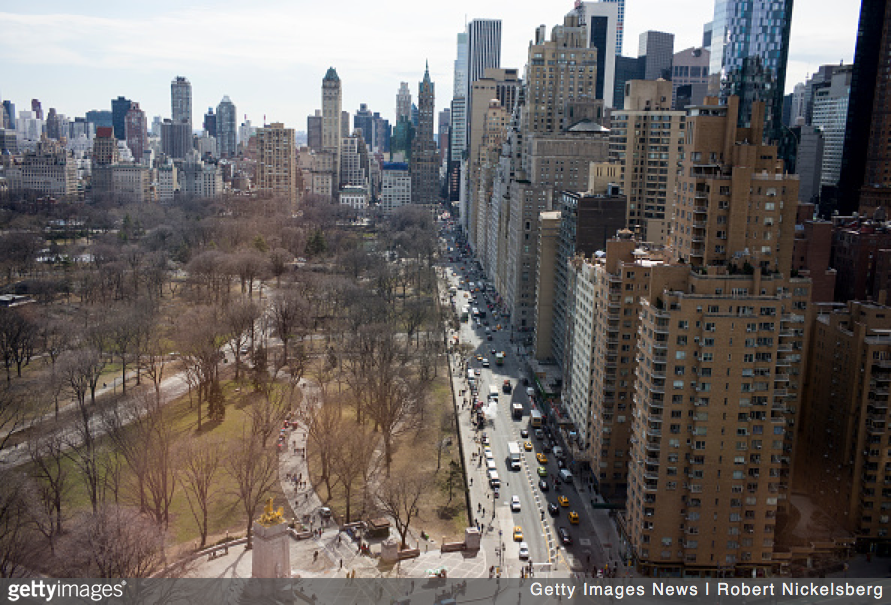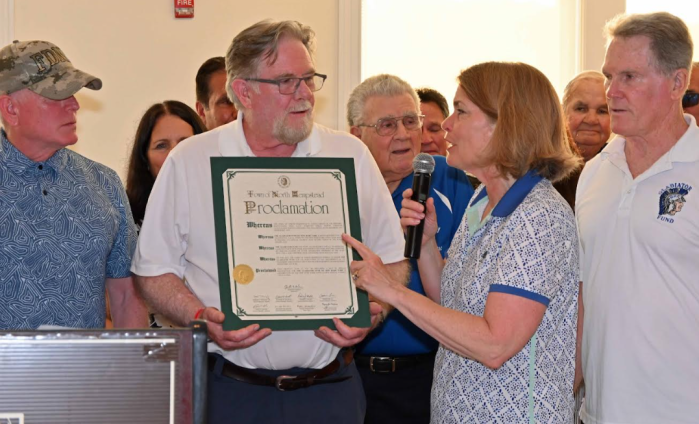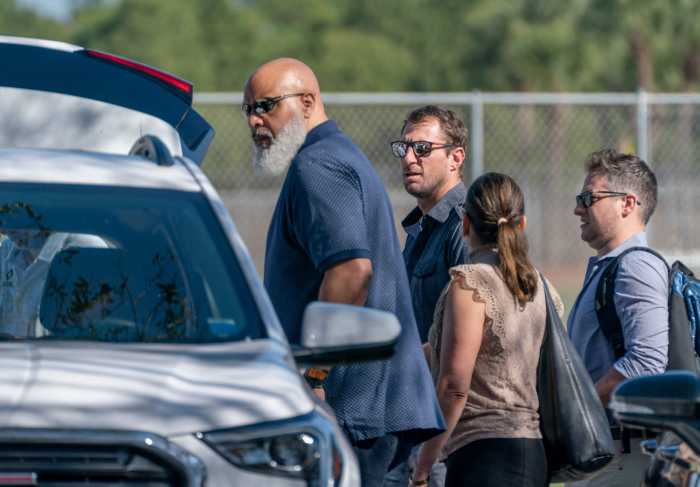U.S. Rep. Peter King (R-Seaford) and a New York City Democratic Congresswoman are co-sponsoring legislation that would lift the veil on shell companies that hide the owners’ true identity in order to move potentially ill-gotten gains through the United States as a ploy to evade scrutiny from federal and state authorities.
The bill, which will be introduced in the U.S. House of Representatives by King and Rep. Carolyn Maloney (D-Manhattan) on Thursday, comes on the heels of an explosive hidden camera investigation by the anti-corruption nonprofit Global Witness that aired Sunday on 60 Minutes.
“This is a massive loophole,” Maloney told reporters Monday. “And it’s really hurting our efforts to combat corruption and money laundering.”
To document how the uber-wealthy hide their funds, whether they became rich legally or through nefarious deals, the anti-fraud activists had an undercover investigator meet with 13 New York City law firms under the guise of representing a West African mining minister who made millions of dollars from government business. At the time of the inquiry, one of the lawyers was the president of the American Bar Association.
The investigator said the minister wished to secretly purchase a brownstone, a yacht and a private jet with the funds he obtained. London-based Global Witness deliberately concocted a story meant to raise red flags to test how far the lawyers were willing to go. In separate preliminary meetings, all but one of the 13 lawyers suggested the minister use an anonymously owned company or trust to essentially launder the ill-gotten gains. Some even noted that their firm’s bank account could be used in the transaction.
None of the lawyers actually took the investigator on as a client and money never exchanged hands, Global Witness said.
Jeffrey Herrmann, the lone lawyer who refused to discuss the matter, repeatedly said, “It’s not for me” and ended the conversation.
The undercover investigator taped the conversations in 2014.
Gillian Caldwell, CEO of Global Witness, said in a conference call with reporters Monday that shell companies were “like getaway cars for the criminal and the corrupt.”
She noted that a “loophole”—in this case, creating a quasi-legitimate company for the purpose of laundering money—is popular among organized gangs, tax evaders, credit card scammers and terrorists.
The bill being sponsored in the House would target criminals who abuse state laws in order to create a back door into the banking system. The legislation would close the loophole by requiring a company to disclose the identity of its owner.
Maloney said in the conference call that if states refused to act, then the U.S. Treasury Department would then step in. Only law enforcement would be privy to the owner’s information.
“This simple requirement would enable law enforcement to stop money from flowing across our borders to terrorist organizations,” King said in a statement through a spokesman.
The number of people who create shell companies to hide money in the US and around the world is believed to be legion.
Governments across the world have sought to tackle the problem, but critics say the US has not done enough to stop money from flowing into the country.
“The United States is sadly lagging behind,” said Caldwell, the Global Witness CEO, during the conference call.
According to Global Witness, the World Bank considers the US as the top destination for corrupt politicians and criminals to launder money through shell companies.
The World Bank in 2011 wrote a report titled “The Puppet Masters: How the Corrupt use Legal Structures to Hide Stolen Asset and What to do About it?” that recommended governments take steps to make anonymous companies more transparent.
“It serves as a powerful reminder that recovering the proceeds of corruption is a collective responsibility that involves both the public and private sector,” the World Bank wrote in its report. “Law enforcement and prosecution cannot go after stolen assets, confiscate and then return them if they are hidden behind the corporate veil.”
On Monday, Caldwell said none of the lawyers recorded via hidden camera broke any laws. And some did say they would need more information about the minister and his funds.
Still, Maloney said even going so far as suggesting ways to move questionable sums of money around in the US is “unacceptable.”
“Our legal system should not protect the rights of bad people to do bad things in secret,” Maloney told reporters.
Sounding exasperated about the status quo, Maloney noted: “It isn’t difficult for them to do so. In fact, it’s shockingly easy.”
Previous attempts to strengthen laws to increase transparency have been defeated. Maloney said she believes there’s more public pressure to get it done this time around.
Global Witness also has a petition calling for U.S. Sen. Chuck Schumer (D-NY) to support similar legislation in the U.S. Senate.


































